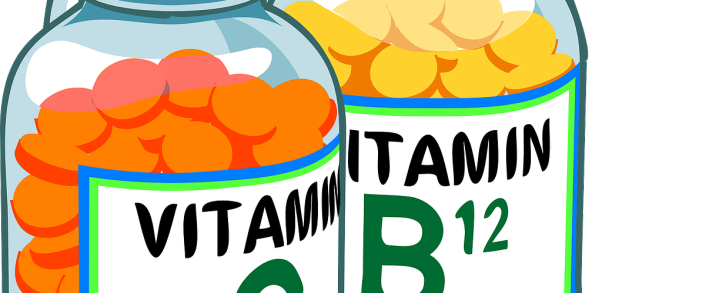It’s Supplementary: The Pros and Cons of Supplement Use for Older Adults
By Meredith Kimple
An apple a day keeps the doctor away.
We know this adage is far from accurate, but what if we substitute “apple” with “multi-vitamin”?
Daily supplements can fill the gaps in our nutrition and fortify our diets. Convenient and easy to take, they may not keep the doctor away, but they certainly make taking care of our health a little simpler.
But as we get older, should we be taking so many vitamins?
As we age, additional supplements are often suggested to accommodate for the minerals we may get less of or that our bodies do not absorb as easily, such as fiber, vitamin D, and calcium. Approximately half of adults over the age of 65 take multiple daily supplements to maintain a healthy lifestyle. But recently there have been increased questions regarding the necessity of such intensive vitamin regimens for seniors.
First and foremost, older adults should only be taking vitamins with the approval of their regular physician. There are those who believe that the supplements often recommended to seniors are unnecessary, as an improved diet can provide as many health benefits, if not more, than a pill.
Let’s take a look at the pros and cons of senior supplement use.
The Pros:
Supplements may just be easier. This may seem like a given; it is much easier to take a pill or gummy than to eat two pounds of broccoli. However, for some seniors, prepping and cooking fresh vegetables just isn’t possible. A decreased appetite or difficulty chewing can make getting the recommended servings of produce a challenge. Taking supplements can help ensure they get the recommended amount of vitamins and minerals every day, no matter their eating habits. Supplements should accompany and bolster a healthy diet rather than replace healthy eating, but for those who are unable to do so, they may be of some help.
High cost of high-quality fresh produce. Not everyone can afford to buy fresh produce, let alone prepare it, and a bottle of vitamins may be cheaper and easier to manage. Supplements can be better than not receiving any nutrients at all, so they may offer a solution to those who cannot afford the cost of healthy eating.
Dietary habits are hard to adjust. Changing one’s regular diet is far from easy, but for some seniors it can pose an even greater challenge. Seniors with memory difficulties may find the necessary lifestyle changes disruptive and hard to adjust to. Adding vitamins to their daily routine may be easier than changing their eating habits, although good nutrition should remain a priority.
The Cons:
The FDA regulates both prescription drugs and over-the-counter cold medication, but it is not obligated to approve dietary supplements for public consumption. This poses a few problems: on the one hand, because they are not regulated, there is no guarantee that they are safe to use. Additionally, this lack of supervision raises questions about the effectiveness of supplements in maintaining our health. For older adults, taking a multitude of unnecessary supplements that their bodies don’t absorb can mean wasted money or, if they ingest too many, serious health concerns.
Supplements are intended to be just as their name suggests: supplementary. Support for a healthy diet, not a substitute. Dietary changes have a greater impact on our overall health, and fresh fruits and vegetables provide benefits beyond what can be attained from a vitamin. Healthy, balanced nutrition is the best way to get all the vitamins and minerals we need to function properly.
Supplements are not neutral. We don’t normally think of supplements and vitamins as being potentially dangerous. While there is no concrete evidence to show that they actively damage our bodies, they can interact poorly with medication. Certain prescription drugs are rendered ineffective by supplements, and it is very important to check with your doctor before taking them.
This is not meant to discourage everyone from taking vitamins. In all matters pertaining to health their regular physicians should be consulted, and this is no different; none of us should blindly pop vitamins without the approval of a doctor. If they recommend a certain vitamin or other supplement, then please take it.
There are medical professionals who maintain that as we age we don’t need to increase our supplement use. They claim that there is little evidence that older bodies produce fewer of the necessary minerals, and that they do not “fix” any health problems. Supplements do not always work, and in some cases, our bodies do not absorb the vitamins properly.
Above all, doctors agree that a healthy diet offers the most benefits. Instead of immediately reaching for a calcium supplement, incorporate more low-fat dairy products into your diet. This may not be enough, but starting with nutrition is almost always a good course of action. Taking a handful of supplements daily may not be as helpful for seniors as previously thought, and taking supplements that have not been approved by a physician may even be harmful.
“A multivitamin a day keeps the doctor away.”
Maybe. But based on the advice of health professionals, try the apple.



